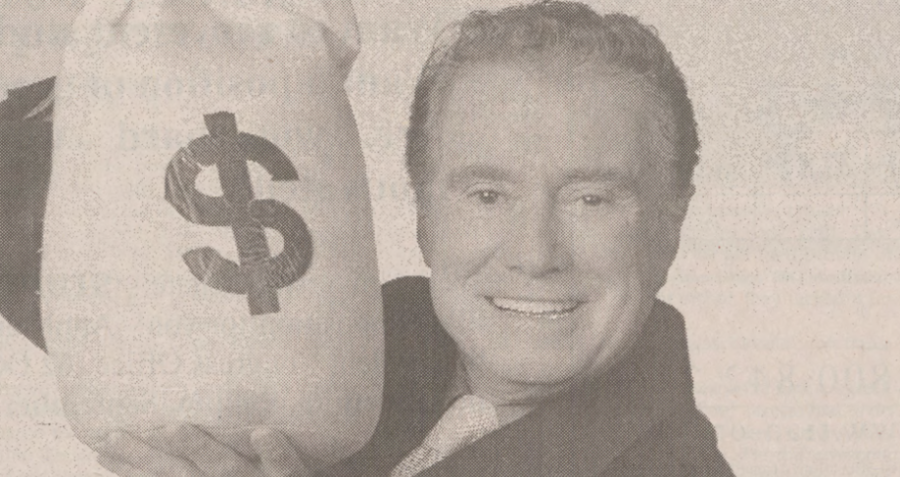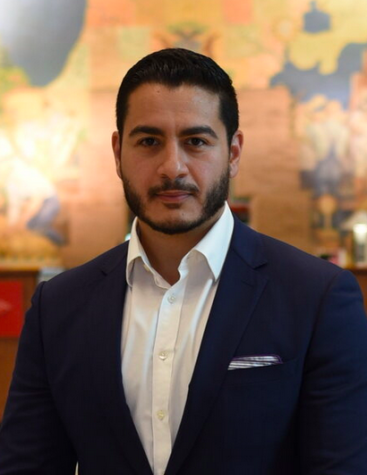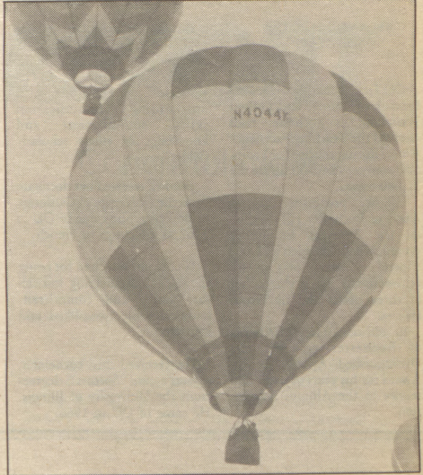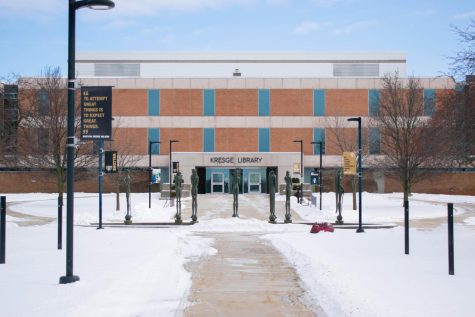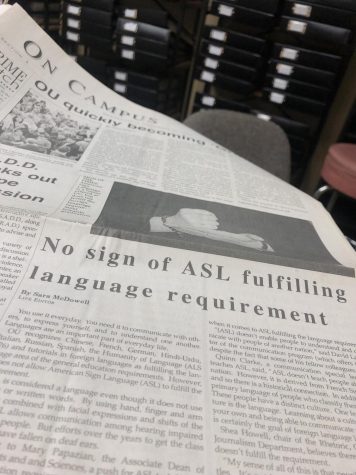Looking Back: OU student goes on ‘Who Wants to be a Millionaire?’
Photo courtesy of The Oakland Post Archives
Regis Philbin (pictured here) hosted “Who Wants to be a Millionaire?” circa 2000.
College is a time to meet new people, learn new things and go broke in the process. Every college student wishes they could skip the whole thing and become a millionaire.
On Aug. 27, 2000, Greg Hummel, an OU student at the time, wanted to make that dream a reality and appeared on the show “Who Wants to be a Millionaire?”
“I just figured, what the heck, sure I’ll go on the show,” Hummel said then. “I just wanted to see if I could win some money.”
Hummel was a 21-year-old college student majoring in business management. He had high hopes of winning at least $32,000, but ended up taking home $1,000.
“Who Wants to be a Millionaire” is simple — contestants answer 15 trivia questions, and the questions get harder the further you get in the game. The goal is to move up the ladder, where each question is worth more money for the contestants.
The money each question is worth has gone up since 2000 and now, there are only 14 questions instead of 15. If Hummel would have competed in the game show today, he would have received $5,000. Hummel got past the first checkpoint at question five, which was worth $1,000 at the time but now is worth $5,000.
The checkpoints back then were — at question five: $1,000, at question 10: $32,000 and at question 15: $1,000,000. Now, the checkpoints are at question five: $5,000, at question 10: $50,000 and at question 14: $1,000,000.
Hummel ended up losing on question seven, which only passed the first checkpoint. He went home with $1,000.
“It was exciting, but I was most nervous in the studio,” Hummel said then. “[There] were a ton of people in the audience. I wasn’t even thinking about the people at home.”
The contestants receive three lifelines to help them throughout the game if they want. They can choose to remove two answers, ask the audience or ask the plus one they brought to the show. This can help the contestants a lot, and Hummel actually ended up using those lifelines.
The trivia question that caused Hummel to go home was about geography. He ended up using a lifeline and calling up his mom’s boyfriend. The question? Which country was the smallest: Australia, Europe, Antarctica or Asia.
Hummel locked in his final answer as Europe, like his mom’s boyfriend suggested, but the correct answer was Australia.
“I have to look on the bright side, you know,” Hummel said then. “It could be worse, I could’ve not gotten in the ‘hot seat’ at all.”
The game show is still running to this day on ABC, and along with shifts in the prices of questions, the game has gone through a couple hosts. At the time, the host was Regis Philbin. Now, Jimmy Kimmel is the host and the show is on season 22.
Hummel was known to be a big fan of Philbin and was excited to meet him.
“I was excited to meet him, and a little nervous too,” Hummel said then. “But he was really nice both on and off camera.”
Hummel may not have went home with the big prize, but he did win something on the game show — going home $1,000 richer. That’s more than most college students could say.
This article was written using The Oakland Post’s archives. These archives are available to the campus community via the library in the front of The Oakland Post’s office.



